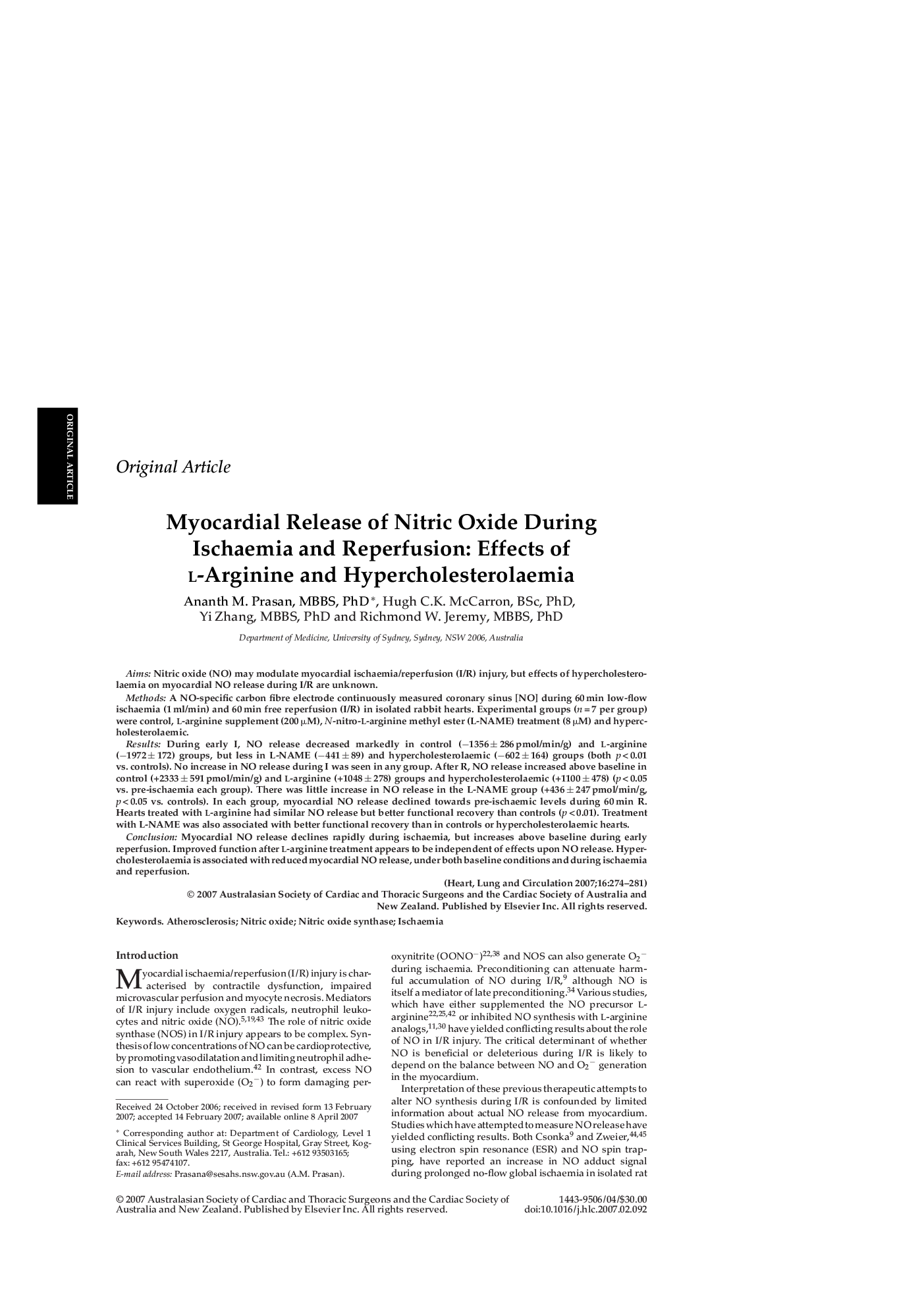| Article ID | Journal | Published Year | Pages | File Type |
|---|---|---|---|---|
| 2921349 | Heart, Lung and Circulation | 2007 | 8 Pages |
AimsNitric oxide (NO) may modulate myocardial ischaemia/reperfusion (I/R) injury, but effects of hypercholesterolaemia on myocardial NO release during I/R are unknown.MethodsA NO-specific carbon fibre electrode continuously measured coronary sinus [NO] during 60 min low-flow ischaemia (1 ml/min) and 60 min free reperfusion (I/R) in isolated rabbit hearts. Experimental groups (n = 7 per group) were control, l-arginine supplement (200 μM), N-nitro-l-arginine methyl ester (L-NAME) treatment (8 μM) and hypercholesterolaemic.ResultsDuring early I, NO release decreased markedly in control (−1356 ± 286 pmol/min/g) and l-arginine (−1972 ± 172) groups, but less in L-NAME (−441 ± 89) and hypercholesterolaemic (−602 ± 164) groups (both p < 0.01 vs. controls). No increase in NO release during I was seen in any group. After R, NO release increased above baseline in control (+2333 ± 591 pmol/min/g) and l-arginine (+1048 ± 278) groups and hypercholesterolaemic (+1100 ± 478) (p < 0.05 vs. pre-ischaemia each group). There was little increase in NO release in the L-NAME group (+436 ± 247 pmol/min/g, p < 0.05 vs. controls). In each group, myocardial NO release declined towards pre-ischaemic levels during 60 min R. Hearts treated with l-arginine had similar NO release but better functional recovery than controls (p < 0.01). Treatment with L-NAME was also associated with better functional recovery than in controls or hypercholesterolaemic hearts.ConclusionMyocardial NO release declines rapidly during ischaemia, but increases above baseline during early reperfusion. Improved function after l-arginine treatment appears to be independent of effects upon NO release. Hypercholesterolaemia is associated with reduced myocardial NO release, under both baseline conditions and during ischaemia and reperfusion.
